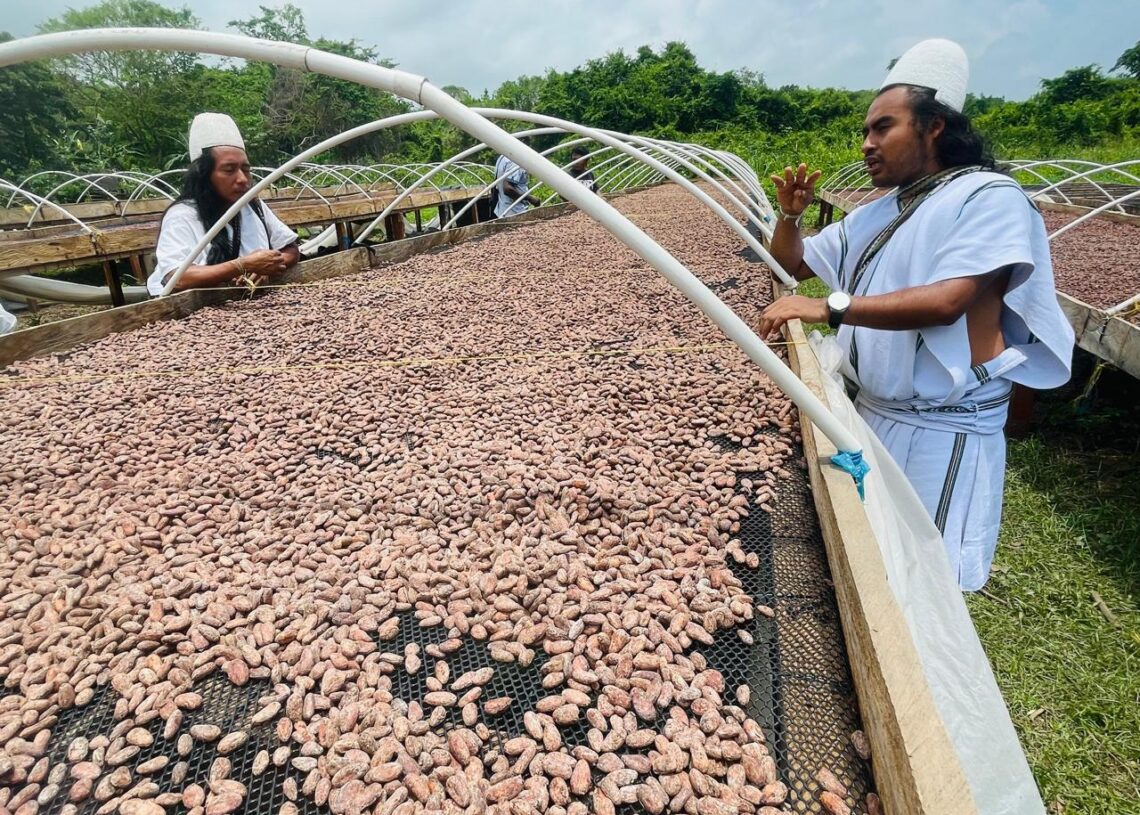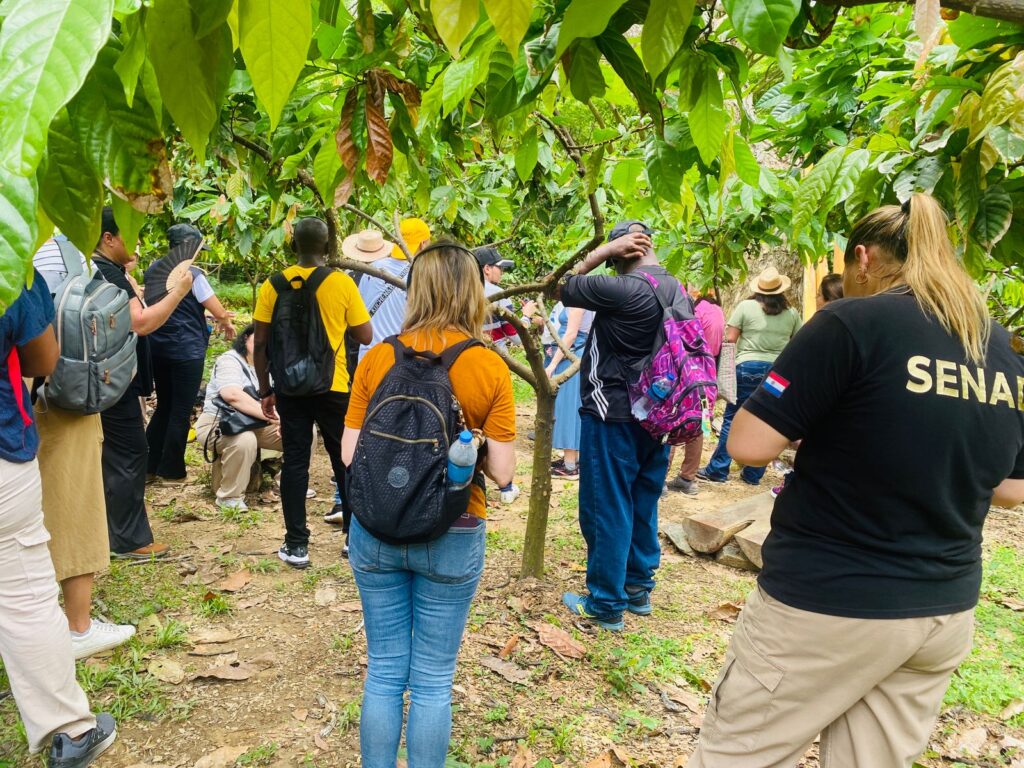The EU-CELAC Cooperation Program on Drugs (COPOLAD III) promoted, with the support of GIZ, a study visit to Colombia from May 6-12, with the objective of sharing innovative Alternative Development approaches related to productive projects in urban areas and indigenous communities. Alternative Development (DAIS) is a process aimed at reducing and eliminating the cultivation of drug crops through development measures.
The visit, organized together with UNODC, was attended by 15 officials from Latin America and the Caribbean, with the aim of learning and deepening their knowledge on the implementation of sustainable alternative development programs by promoting the exchange of experience among peers. The delegation also included a representative of the European Drug Control Agency (EMCDDA) and public servants from the Ministry of Justice and Law and the Directorate for the Substitution of Illicitly Used Crops of Colombia, as well as officials from UNODC and CICAD-OAS.
The visit included an inaugural session in Bogota by Gloria Miranda, Director of the Drug Policy Directorate of the Colombian Ministry of Justice , who outlined the challenges of the country’s Drug Strategy: “We want to learn from past programs, but make a conceptual change. Where there are illicit crops, the presence of the state is needed and a territorial key is necessary,” he said. The presentation also analyzed the Evaluation of the Integral National Program for the Substitution of Illicit Crops, carried out by the Center for Studies on Security and Drugs (CESED) of the Universidad de Los Andes and the challenges of the new Crop Substitution Plan, by its director Felipe Tascón.
Precisely in this territorial key, on Tuesday, May 7, a visit was made to the Santa Fe neighborhood in Bogota, where various problems of drugs, poverty and social exclusion coexist and where COPOLAD III supports, on a national level, the social economy projects promoted by the Procrear Foundation. The delegations were able to visit the listening and health care services, as well as the experience of a sewing workshop that has boosted the economy of women in the neighborhood, many of whom are migrants, poor or sex workers.
“The fight against drug trafficking is also a social issue. It is essential to generate economic opportunities so that the youth of our countries see micro-trafficking for what it is: a trap, not an income opportunity. We are joining forces with the Ministry of Justice to promote social innovation laboratories in Santander de Quilichao and Cali, because we are convinced that they can provide new opportunities for the youth of the two cities,” said Gilles Bertrand, Ambassador of the European Union.
On Tuesday afternoon, the delegation travelled to the Department of Magdalena to visit the experience of Alternative Development in consolidated projects such as the coffee and cocoa cooperatives COOAGRONEVADA and the Ecolsierra Network, to learn about the key to their success. The work week concluded on Saturday with a working meeting and visit to the cocoa production development project of the Arhuaco people after their resettlement in their ancestral territories.
In the coming months the COPOLAD III Program through GIZ will publish a report on innovative Alternative Development measures that will include an urban approach, hemp commercialization and adaptation to indigenous territories and border areas.







